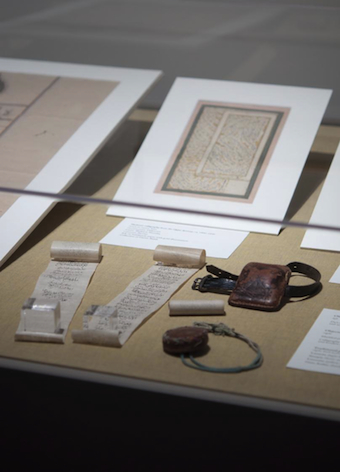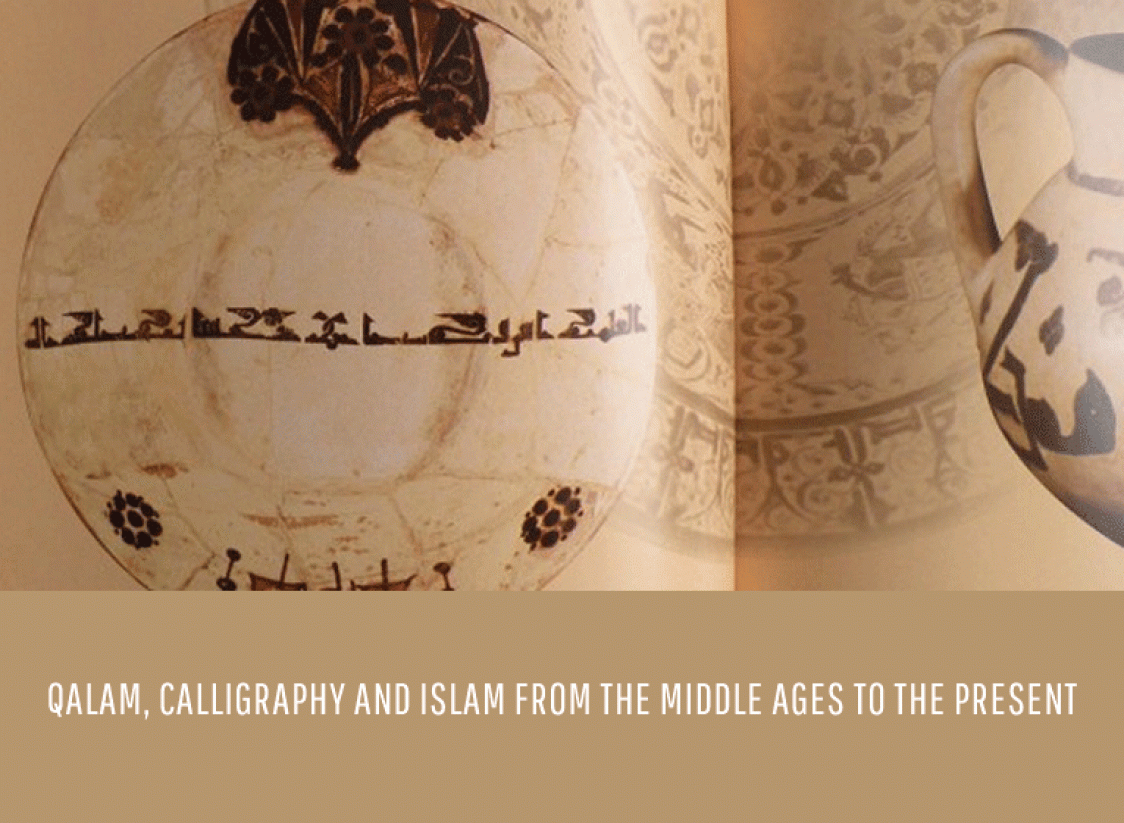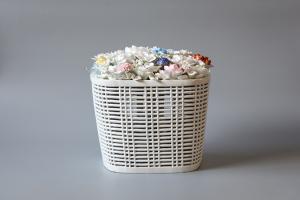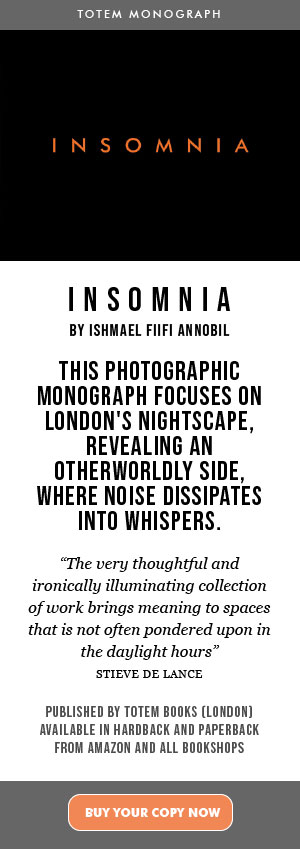Douglas F. Cooley Memorial Art Gallery
Reed College Library
February 4–April 27, 2014
Public lecture by visiting scholar Dr. Hamidreza Ghelichkhani
Reed College Chapel, Eliot Hall
Tuesday, April 1, 7pm
The Douglas F. Cooley Memorial Art Gallery, Reed College, presents Qalam, Calligraphy and Islam from the Middle Ages to the Present, an exhibition of historical and contemporary Arabic and Persian calligraphy and related material that offers an immersive glance into one of the most poetic and spiritual art forms.
The earliest qur’anic verses (96:1-5) that refer to God as the Creator who teaches “by the pen”—al-qalam—signal the esteemed place of calligraphy in the world in which Islam emerged. The development of Arabic calligraphy, from its earliest linear forms in the eighth century, to its subsequent standardization as a set of cursive scripts by a lineage of master typographers and calligraphers, evidences the complex and shifting status of text and image throughout this history.
The works in Qalam elucidate this complexity, asking visitors to consider the evolving relationship between calligraphy and Islam, as well as the continuing transformation and exhibition of this art form. At the center of Qalam is a group of rare works on loan to the Cooley from the Asian Art Museum, San Francisco, and a diverse array of manuscript folios from the collection of Reed alumnus Stephen Herold ’63.
 Qalam includes qur’anic folios from the ninth through the nineteenth centuries; Persian and Iranian illuminations depicting stories of love and mystical revelation; a Qing Dynasty (1644–1911) incense burner with Arabic inscriptions; traditional writing implements and materials from the collection of Darius Rejali; a documentary film of American Islamic calligrapher Mohamed Zakariya; and a body of contemporary calligraphy by renowned Iranian calligrapher and scholar Dr. Hamidreza Ghelichkhani.
Qalam includes qur’anic folios from the ninth through the nineteenth centuries; Persian and Iranian illuminations depicting stories of love and mystical revelation; a Qing Dynasty (1644–1911) incense burner with Arabic inscriptions; traditional writing implements and materials from the collection of Darius Rejali; a documentary film of American Islamic calligrapher Mohamed Zakariya; and a body of contemporary calligraphy by renowned Iranian calligrapher and scholar Dr. Hamidreza Ghelichkhani.
In conjunction with the exhibition, Ghelichkhani comes to Reed College as a visiting scholar. Dr. Hamidreza Ghelichkhani received his PhD in Persian from Delhi University in India, writing his dissertation on Mogul Bookmaking and Ornamentation through the Poetry of Orfi Shirazi to Bidel Dehlavi. He holds a Master’s degree in Persian Literature from Islamic Arak University in Tehran.
Ghelichkhani has taught calligraphy, paleography, and typography for over a decade at institutions such as the University of Delhi, India, and Amir Kabir University in Tehran. A highly respected calligrapher, Ghelichkhani has exhibited his work widely, and curated historical and contemporary calligraphy exhibitions in Iran and India. He is the author of numerous publications on the history and practices of calligraphy.
Dr. Ghelichkhani’s visit is supported by the American Institute for Iranian Studies, and the Office of the Dean of Faculty, Reed College. Qalam is curated by Kambiz GhaneaBassiri, Professor of Religion and Humanities, Reed College; and Stephanie Snyder, John and Anne Hauberg Curator and Director, Douglas F. Cooley Memorial Art Gallery.
The exhibition is being examined and further elucidated by the students of Professor GhaneaBassiri’s course, “Art and Literature of Islam.” Arabic Scriptorium open to the Reed and Portland communities: Wednesdays, beginning February 12, 6–8pm. Psychology room 102–103, free, all materials provided, no prior experience necessary.
Arabic Scriptorium is organized by the Calligraphy Initiative in Honor of Lloyd J. Reynolds, a program of the Douglas F. Cooley Memorial Art Gallery. Founded in 2012, the Calligraphy Initiative is introducing a new generation of Reed students and community members to the study and practice of calligraphy and paleography.
The Calligraphy Initiative is coordinated by Gregory MacNaughton ’89. For more information, please contact Gregory at macnaugg@reed.edu or 503.517.7677.
Douglas F. Cooley Memorial Art Gallery
Located in the Reed College Library
3203 SE Woodstock Blvd.
Portland, Oregon 97202
Hours: noon to 5pm, free Tuesday–Sunday, closed Monday



